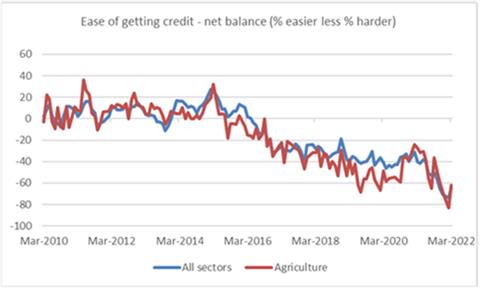The issue is irking me more and more because of the huge reaction from mortgage brokers, borrowers and commentators as banks applied extra scrutiny to home lending, with the finger pointed at the Credit Contracts and Consumer Finance Act (CCCFA).
As the brakes on credit were applied, we saw an uproar.
There were good reasons for an uproar on some levels. A piece of well-intended legislation initially aimed at loan sharks had ridiculous consequences as bankers and mortgage brokers trawled through bank statements eyeing spending patterns, the coffee count, subscriptions, eating out patterns, all in the interest of responsible lending and providing an evidentiary trail.
Some tightening around the edges was warranted, but the legislation and application of it went too far. Banks are not in the business of irresponsible lending.
But the whole reaction just served to reinforce an unfair playing field and the fixation across society with anything to do with housing.
It is not normal or sustainable for home lending to rise at more than 11% a year, or roughly double the rate of income growth, just like business loan growth cannot exceed business income for a sustained period.
The CCCFA got the attention but there are many things acting to constrain home lending growth, including loan-to-value ratio restrictions, higher interest rates, a softer property market, increases in bank test serviceability rates and changes in banks’ risk tolerance as house prices start to fall.
Home loan commitments in February were $5.7 billion, down from $7.6 billion in February 2021, a huge fall on the face of it. However, lending levels in February 2022 were above other February’s between 2014 and 2020. Talk of a credit crunch is a long way off the mark. It is simply a more normal lending market.
Home lending has grown to 62.4% of total bank lending, steadily rising from 56.2% in 2016.
Over the same period, business and agriculture lending’s share of total lending has shrunk, hardly the credit mix to drive a more productive and dynamic economy.
Businesses across the general economy and rural community have been reporting it as more difficult to get credit since 2016, according to ANZ’s Business Outlook Survey.
There is no new information in this.
The past three months, including the reaction to the CCCFA and modestly slower home lending growth, has simply reinforced the ridiculousness of the playing field. Welcome to the environment the business sector has been dealing with for six years.
There are many issues that need tabled, including:
Regulatory Capital Risk Weightings that far too excessively favour home lending over business lending.
Underdeveloped capital and credit markets in New Zealand.
Dominance of the major banks and ways to stimulate more competition.
The constant cost cutting by banks removing critical credit skills. The cost to income ratio across three of the big four is below 40%.
The fixation with regulators on compliance is dragging banks’ resources away from focusing on delivering solutions to both new and existing clients
The financial nous of many businesses; the finger cannot just be pointed at lenders or regulators.
The Ministry of Business, Innovation and Employment investigation into problems with the application of the CCCFA should be the appetiser for the main course. Let’s have an extensive look at an array of factors influencing credit facilitation into the business and farming sectors. The path to prosperity is not paved with selling more expensive houses to each other.
The business sector needs champions highlighting issues just like the housing market does.
More: Cameron Bagrie is the Managing Director of Bagrie Economics and a shareholder and director of Chaperon – helping business navigate banking. His views do not constitute advice.










